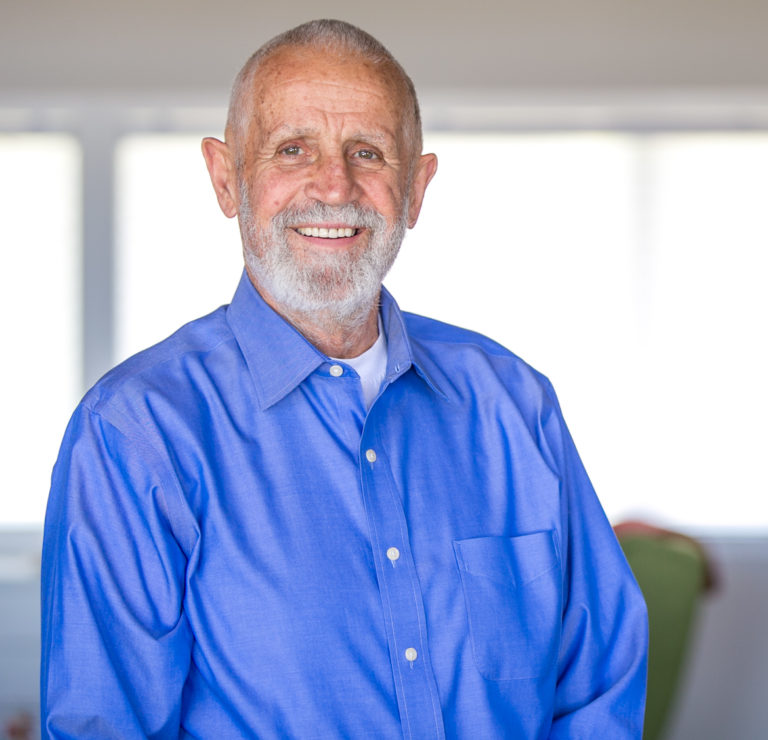Our Why
Hans, Annemarie & Jennifer Bleiker

We are a husband-and-wife, and now daughter too, firm.
You ask WHY we do what we do?
It’s not really about us, it’s about YOU — and the mission the public gave you.
Each of us had professional aspirations that had nothing to do with teaching, citizen participation, or even making government more effective.
Yet — here we are.
The three of us derailed ourselves from perfectly good, honorable, profitable careers (about which you can read more about below) —
— because we couldn’t let another public-sector professional fail to implement his/her mandate when we had the recipe to help them succeed.
Don’t let your work end up on a shelf
As we see it — if you work in a legitimate public agency — your work is downright VITAL.
Your expertise is worth too much to be wasted on developing proposals that don’t get implemented.
The public gave you your mission to address certain problems and opportunities.
The public NEEDS YOU to succeed in fulfilling your mission.
If you fail at accomplishing that mission, then we ALL fail — because those problems don’t go away.
Our methodology has an impressive track-record of giving professionals with important missions the tools to succeed.
We’ve trained between 30,000 and 40,000 public-sector professionals — people just like YOU.
We have a huge list of references, testimonials, and quotes.
If you work on legitimate problems, and use our approach to get your FIERCEST opponents’ Informed Consent, we can almost guarantee your ability to fulfill the mandate the public gave you.
That’s why for each of us, it feels fantastic to provide people like you with the tools to get the job done.
Making government more effective isn’t just good for public-sector professionals, it has healing effects for the community at large.
That, is why the three of us eagerly devote ourselves to teaching, mentoring, and coaching problem-solvers like you.
- We believe public agencies were meant to be Problem-Solving entities,
- Not to create bureaucratic red-tape.
- We believe you get up every morning because you understand how CRITICAL your mission is.
- Not so you can feed at the government trough.
- We believe, if your work is technically rigorous, lacking Informed Consent is the only thing that will keep you from fulfilling your mission.
- Not budget constraints, not the political climate, or NIMBY.
Alone at age 16, I left my native Switzerland.
Setting off to “do more” than what my social rank would have permitted, I headed for the “land of opportunity” — the United States.
Over the next several years, my journey led me to become a farmhand in Wisconsin, a cowboy in the Wyoming & Montana, an aircraft mechanic for the U.S. Air Force, and a graduate of the 6-year Bachelor’s from the Architecture program at the University of Cincinnati.
Each chapter in my adventure was better than the last.
America proved to be the “land of Opportunity” — as advertised!
My architectural education was particularly fulfilling — until it dawned on me that most of my work would consist of designing beautiful structures for wealthy people. Which wasn’t the end of the world, but this was 1966 — a time when cities were burning with social, racial, and economic tension, as the Civil Rights protests heated up.
Hans Bleiker, Lead Instructor

Now, my need to do work that was more meaningful, than designing beautiful houses for rich people surpassed teenage adventure, or even the need to provide for my young family.
There were bigger, more serious problems to solve. . .
I wanted to be part of the solution.
So, I pursued a Ph.D. in Urban Planning from the Massachusetts Institute of Technology (MIT), that drew from the design work I did in architecture school, and gave me a way to address problems relative to: social, economic, environmental, and transportation issues (i.e. the kind of complex problems that appeared to plague the U.S. at the time).
While doing four case studies at MIT, I made two major findings.
These findings changed my life (and can change yours).
Finding #1: Urban planners — and other public-sector professionals — are shockingly ineffective at fulfilling their missions. At about the 11th hour of the planning process, ALL HELL WOULD BREAK LOOSE.
Too often, their proposals were
- Stopped
- Derailed
- Shelved
- Compromised
- Torpedoed
- etc.
Worse yet: these frustrated project managers were more charismatic, more connected, more experienced than I was likely to be!
Then came. . .
Finding #2: A tiny minority of the people I was studying WERE effective.
Unlike their peers, their proposals were
- NOT stopped
- NOT derailed
- NOT shelved
- NOT compromised
- NOT torpedoed
- but simply IMPLEMENTED!
These professionals WERE able to accomplish their mission.
They proposed the
- SAME kinds of projects
- worked in the SAME contentious political environments
- functioned under the SAME kinds of contraints
And yet, their public TRUSTED them!
Their public BELIEVED them.
Their public WENT ALONG with their proposals, even when they (as individuals) were negatively impacted!
I saw these public-sector professionals as “Implementation Geniuses.”
So what was the hidden ingredient in their effectiveness?
(Hint: it’s what you learn in our Consent-Building training.)
If Annemarie hadn’t protested, I would have started my Ph.D. all over, just to figure out what these “Implementation Geniuses” were doing differently.
Instead, I finished my Ph.D., became the Planning Director for the City of Lynn, Massachusetts (population 100,000), later as the Project Manager for a research project at MIT’s Transportation Systems Division, and eventually the Director of the Planning for a large Environmental Consulting firm, NHPQ, that worked in the Rocky Mountain region.
My last “real job” was as a tenured professor at the University of Wyoming, where I was recruited to create – and then administer – its Graduate Program in Community and Regional Planning. I served as Director of that program for twelve years.
